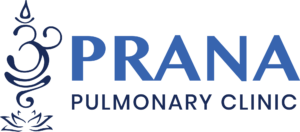What Lifestyle Changes Can Help Manage Bronchiectasis Symptoms?

Bronchiectasis is a condition in which the airways in the lungs become damaged and widened, resulting in frequent infections, mucus buildup, and difficulty breathing. While treatment plans often involve medications and therapies, lifestyle changes can play a crucial role in managing symptoms and enhancing overall quality of life. For those living with bronchiectasis, adjusting daily habits and adopting healthier practices can make a significant difference in how they feel on a daily basis.
For individuals with bronchiectasis, making thoughtful lifestyle changes is a critical step in improving symptoms and reducing flare-ups. Whether you’re managing the condition on your own or working with a healthcare team, these simple yet effective changes can make a substantial impact. For anyone looking for expert care, visiting a pulmonary clinic in Morristown TN might be the first step in understanding how lifestyle changes can help control bronchiectasis symptoms.
1. Prioritize Airway Clearance
One of the most crucial aspects of managing bronchiectasis symptoms is ensuring the airways stay clear of mucus. This buildup can cause frequent infections and difficulty breathing, making airway clearance a priority. Techniques like chest physiotherapy (CPT) can help loosen mucus, allowing for easier expulsion. Regularly performing deep breathing exercises and using a mechanical device such as a Positive Expiratory Pressure (PEP) therapy device can also help. Incorporating these techniques into a daily routine ensures the lungs remain as clear as possible, reducing the risk of infections and improving overall lung function.
2. Maintain a Nutritious Diet
A balanced and nutritious diet is an important part of managing bronchiectasis. Since the condition can cause frequent infections, it’s essential to support the body’s immune system with proper nutrition. Foods rich in vitamins C and E, as well as other antioxidants, can help reduce inflammation in the airways and improve lung function. Staying hydrated is also key to thinning mucus and easing its removal from the airways. Additionally, individuals with bronchiectasis need to maintain a healthy weight, as being underweight or overweight can lead to complications, including an increased risk of infection or difficulty managing breathlessness.
3. Exercise Regularly
Regular physical activity is beneficial for anyone, but it can be especially helpful for individuals with bronchiectasis. Exercise helps improve overall lung function, strengthens the muscles involved in breathing, and increases stamina. Even low-impact activities like walking, swimming, or cycling can significantly benefit people with bronchiectasis. Exercise also helps prevent complications like muscle weakness, which can further exacerbate breathing problems. However, it’s important to consult a healthcare professional before starting a new exercise regimen to ensure that it’s safe and appropriate for your specific needs.
4. Avoid Smoking and Pollutants
For individuals with bronchiectasis, it’s especially important to avoid smoking and exposure to environmental pollutants. Smoking damages the lungs and worsens symptoms, so quitting smoking is one of the most beneficial steps to take. Additionally, avoiding second-hand smoke and staying clear of air pollution can help prevent irritation in the airways. For those living in areas with high pollution levels, wearing a mask when going outside may be necessary. Ensuring that your living environment is free from indoor pollutants such as dust, mold, and pet dander can also reduce flare-ups and help you breathe more easily.
5. Stay on Top of Infections
Frequent lung infections are a hallmark of bronchiectasis, so staying proactive in managing them is crucial. Regular check-ups with a doctor, vaccinations (such as the flu and pneumonia vaccines), and timely treatment with antibiotics can help prevent infections from worsening. It’s essential to monitor symptoms closely and seek medical attention if an infection appears. Keeping track of any changes in symptoms, such as increased coughing, mucus production, or shortness of breath, can help prevent complications and ensure timely treatment.
6. Manage Stress and Mental Health
Chronic conditions like bronchiectasis can take a toll on mental health, leading to feelings of anxiety, depression, or frustration. Managing stress and emotional well-being is just as important as physical health when it comes to managing bronchiectasis. Mindfulness, relaxation techniques, and counseling can help individuals cope with the challenges that come with living with the condition. Finding a support network of friends, family, or others with similar health conditions can also provide comfort and encouragement during difficult times.
Managing bronchiectasis is an ongoing process, but lifestyle changes can significantly reduce symptoms and improve quality of life. Prioritizing airway clearance, maintaining a nutritious diet, staying active, avoiding harmful pollutants, staying on top of infections, and managing mental health are all key components of managing bronchiectasis. If you need expert guidance in implementing these changes, a pulmonary clinic in Morristown TN can provide the care and resources needed. With the right approach, you can take control of your condition and lead a fulfilling life. For expert care and support in managing bronchiectasis, contact Prana Pulmonary Clinic today.










